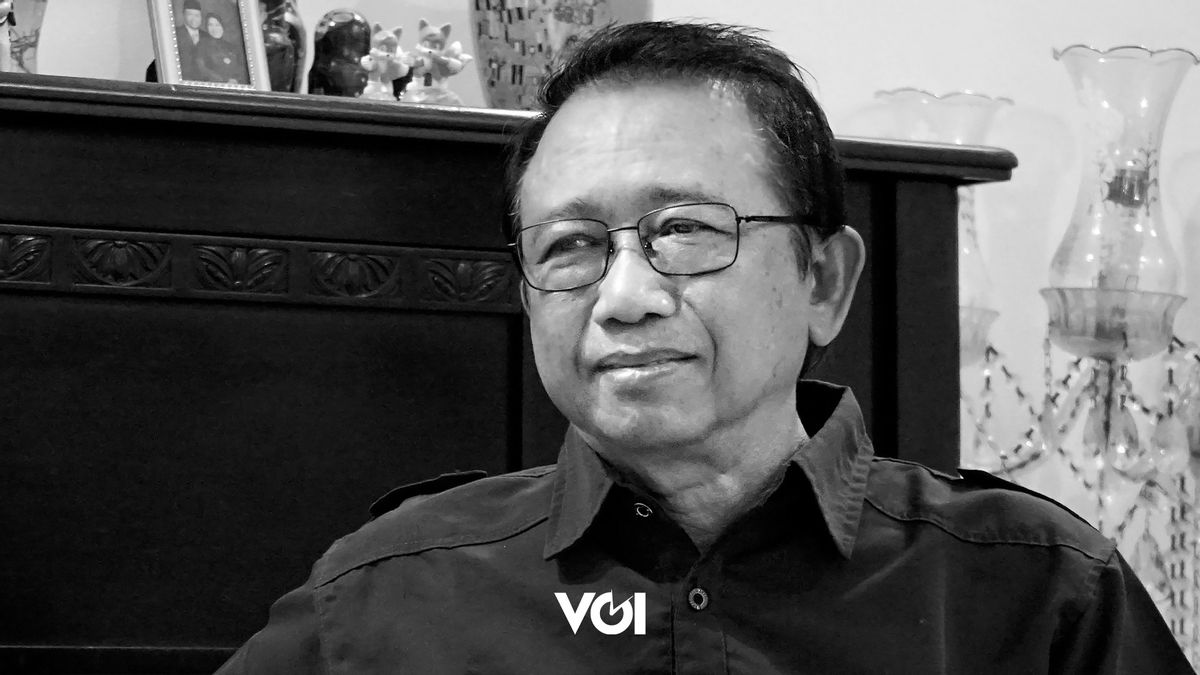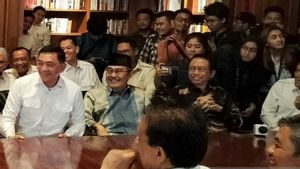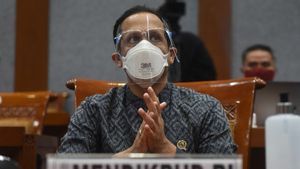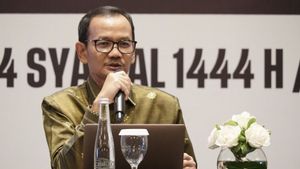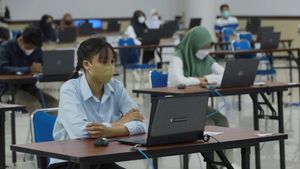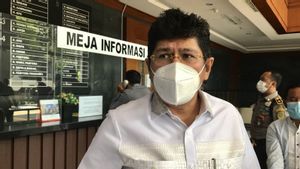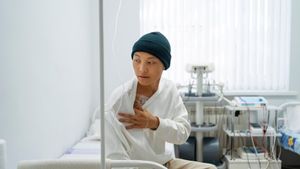Discussing Private Universities (PTS) with State Universities (PTN) is actually not comparable. The problem is according to the Chairman of the APTISI Advisory Board (Association of Indonesian Private Higher Education) Dr. H. Marzuki Alie, SE, MM, there are too many facilities provided for PTN by the government, while PTS are only a few. Because of that, he said, if the government cannot provide maximum assistance, it should be able to create a conducive climate so that PTS can grow and develop.
***
Based on Law No. 12/2012 on Higher Education, the positions of PTN and PTS are equal. "In the law, it has been stipulated that there is no difference between PTN and PTS, except for accreditation which is a marker. Previously, accreditation used levels A, B, and C, now it has been replaced with Good, Very Good, Excellent, or Not Accredited," said Marzuki Alie.
However, the impression that the government pays more attention to state universities is difficult to deny. At least, said Marzuki, there are several indicators that differentiate government-run higher education institutions and those that are managed by the private sector. In terms of facilities, infrastructure, lecturers, and student admissions. From another point of view, the difference between the two creates a big gap. On the one hand, PTN has complete facilities, sufficient lecturers, and selected student input. While PTS, only some have good facilities and a sufficient number of lecturers. While the input is left over, those who don't qualify at PTN enter PTS.
What Marzuki Alie highlighted the most was the method of recruiting PTN new students, which according to him was too excessive. There are three entry routes, namely the National Selection Based on Achievement (SNBP), the National Selection Based on Tests (SNBT), and the Independent Selection. The SNBP and SNBT are prepared by the SNPMB Team, while the Independent Selection pathway is fully managed by the respective PTNs.
With a model like this, the capacity of PTN is getting bigger, while PTS is decreasing. The data revealed by Marzuki has decreased interest in entering PTS ranging from 25 to 50 percent in the past year. The independent pathway is regulated by PTN, each of which has a component that is most different from the SNBP and SNBT pathways, namely donations in a certain amount, each study program differs in magnitude. This independent pathway acceptance model is more or less similar to the PTS entrance selection. If you can enter PTN through independent pathways, why do you have to enter PTS at the same fee and sometimes it is more expensive. Meanwhile for the facilities, of course, PTN has been measured.
That's why Marzuki Alie called for the acceptance of new PTN students not to be too excessive so that PTS can get students with a good number and quality as well. "In my opinion, the government does not need to provide assistance to PTS as long as PTNs do not compete hard in attracting prospective new students. As with the Open University, it should be directed back to the original purpose of its establishment. We are ready to educate students to be better, as long as we are given the opportunity," he told Edy Suherli, Ronald Tanamas, and Irfan Medianto from VOI who met him in the Halim area, East Jakarta, recently. Here is the excerpt.

According to the Chairman of the APTISI Advisory Board Marzuki Alie, so far there has been a gap between State and Private Universities. (Photo: Irfan Medianto, DI: Raga VOI)
What is the state of PTS now in the midst of competition and breakthroughs made by PTN which have the full support of the government?
Higher education is a continuation of primary and secondary education. If the quality of students entering college is not good, this is not an easy job. Currently, the number of tertiary institutions is almost 4,400, with around 300 being PTNs and the rest being PTSs. Without PTS, PTN will not be able to educate students who wish to continue their studies to the tertiary level. The problem is that in the past, the establishment of PTS was too easy to do without considering feasibility. As a result, PTS management is good, some are average, and some are below standard. The government must solve this problem, but how? This is homework.
The government must improve the quality of tertiary institutions, not only by providing accreditation. Lecturer quality must be considered. It is not easy for private universities outside big cities to get qualified lecturers. This is something that should be supported by the government. In addition, infrastructure gaps also need to be addressed. Some PTS may be able to provide adequate facilities, but many also only have standard or even minimal facilities. The comparison is far away when compared to PTNs which receive funding from the state.
Regarding the acceptance of new students, what is your view?
PTS does face difficulties in getting students. The majority of prospective students prefer PTN as their primary choice, even though the law has stipulated that there is no difference between PTN and PTS, except for accreditation which is a marker. In the past, accreditation used levels A, B, and C, now it has been replaced with Good, Very Good, Excellent, or Not Accredited. However, accreditation does not always guarantee quality, the most important thing is the dedication of the students themselves. There are students who study in ordinary PTS but are able to achieve and are competent. For example, there are alumni from UIGM (Indo Global Mandiri University) Palembang who come from study programs with accreditation C but have successfully passed the selection at Bank Indonesia and have had good careers.
There was an attempt to merge several PTS to improve quality, but on the other hand, PTS under the auspices of the Ministry of Religion opened a new program that was outside their focus, namely Religious Education. Currently, UIN (State Islamic University formerly IAIN) has a variety of study programs just like PTN. This is an inconsistent policy. There needs to be a joint discussion to resolve this issue.
What are the other problems encountered?
The budget allocation for the Ministry of Education, Culture, Research and Technology is only around 13 percent. The rest are scattered to various places. As a result, the role of the Ministry of Education and Culture has become less strong, which has resulted in a decrease in the provision of scholarships. In fact, the allocation of funds for the function of education increased. In addition, other ministries also created high schools or official schools. In fact, if a study program such as accounting already exists at PTN, there is no need for a State College of Accounting (STAN). This creates the impression that STAN alumni have privileges in the Ministry of Finance. The same thing happened in other ministries that also have schools.
In my opinion, the budget used for official education should not be mixed up with the budget allocated to increase the quality and quantity of students who wish to continue their education. With increasingly limited funds, the gross enrollment rate (APK) of students entering university has also decreased. Data for 2022 shows that the GER is only around 32 percent, meaning that 68 percent of students do not continue on to tertiary education. There is no reason not to pay attention to this situation.
I often mention this issue to President Jokowi and Minister of Finance Sri Mulyani on social media. It is not enough just to say that education funds have reached 20 percent of the state budget, which is around IDR 300 trillion. This is inconsistent with the fact that the quality of education has not improved, especially if the funds are used for official schools. This is contrary to the constitutional mandate.

The campus, said Chairman of the APTISI Advisory Board Marzuki Alie, does not determine student success, what determines is the students themselves. (Photo: Irfan Medianto, DI: Raga VOI)
PTN is now competing to attract prospective new students through various channels, including National Selection Based on Achievement (SNBP), National Selection Based on Tests (SNBT), and independent selection. This independent path turned out to be in great demand. What's your view on this matter?
In fact, this condition has been going on for a long time in PTNs, even PTNs that are under the Ministry of Religion. The main goal is to attract as many prospective students as possible. Polytechnics managed by the Ministry also have a similar approach. As a result, the rest just entered PTS. If PTS can produce great alumni, it means that PTS is extraordinary. If a PTN can produce great alumni, that's a normal thing, because the input that comes in is qualified and selected, and the facilities owned by the PTN are also complete.
How big is the decrease in the percentage of entering PTS with the independent pathway?
The more poor people are, the less chance they have of going on to higher education. PTN's policy of accepting as many students as possible without limits reduces interest in entering PTS. Based on the data I received, there was a decrease of around 25 to 50 percent in student enrollment in PTS. This situation is exacerbated by the Open University which is also competing to attract students, even from outside the big cities. I have provided input to Mr. Plt. Director General of Higher Education, Research and Technology: Prof. Ir. Nizam, MSc, DIC, Ph.D., but no concrete action has been taken yet.
Can the quality of our university graduates be fully absorbed by the world of business and industry?
I see that university graduates are not fully in line with the needs of the business and industrial world. Recent graduates often have to go through a full year of additional training. Currently, with the Merdeka Belajar policy, students are required to do an internship for two semesters which can be recognized as part of the credits. It is important for the government to provide support by requiring companies to accept student internships. If necessary, the cost of the internship can be counted as a tax deduction.
What is your view on the rapid development of technology, especially the presence of Artificial Intelligence (AI) which has penetrated various fields?
Change is something that cannot be avoided, not just a slogan. However, these changes must be balanced with sustainability. I often give advice to students that the knowledge they have now is not necessarily relevant after they graduate. Basically, in college, they are taught how to think. The most important thing is how they can develop intelligent and rational logical thinking. People who cannot think logically will have difficulty adapting to change, which in turn can threaten many types of jobs.
However, it should be noted that new fields of work will also emerge as technology advances. Universities must be able to read this trend. I myself always open study programs that do not exist at other campuses. For example, I opened the Occupational Health Safety (K3) study program a few years ago. Recently, UGM also opened a similar program. Existing study programs should also be enriched with other skills so that graduates are ready to face changes that may occur in changing professions.
How do you respond to this rapid technological development?
Collaboration, both on and off campus, is important. Our campus cooperates with universities abroad. We also invite the diaspora to give lectures. These teachers come from various countries such as Australia, Japan, the Netherlands, Finland, England, America, and others.
VOIR éGALEMENT:
Should the government help PTS?
In my opinion, the government does not need to provide assistance to PTS as long as PTNs do not compete in attracting prospective new students. As with the Open University, it should be directed back to the original purpose of its establishment. We are ready to educate students to be better, as long as given the opportunity. If most of the citizens of the country had the opportunity to pursue higher education, this would make society even more intelligent. With a better understanding, they can choose a candidate leader through general elections with rational considerations. Currently, in difficult conditions, elections are more often influenced by economic needs, so that the practice of money politics is still ongoing. People who have money are more likely to be elected to the board.
Ideally, are students directed to become employees or entrepreneurs?
I founded the school with an eye on the fact that we lack an entrepreneurial spirit and have a hard time being competitive. Therefore, the UIGM vision that I built is to create alumni who have integrity and professionalism, are able to create job opportunities, and are able to take advantage of existing job opportunities. So, the orientation is professional and entrepreneurial. This approach can address existing challenges.
So all parties must be ready to face the global challenges in the future?
Of course, they must be ready, because the challenges in the future will be even greater. This is also true in a wider context. At the UIGM campus, I have prepared our students and lecturers for this. The aim is for them to be able to compete with existing PTS and PTN. The results have proven that this is possible.
Indonesia has signed the AFTA (ASEAN Free Trade Area), but preparation for dealing with it is still not enough. How will we be prepared for AFTA if preparations are inadequate? If there is a problem with the entry of foreign workers, who will be responsible? All of these things need to be carefully prepared, and progress must be continuously monitored. The year 2045 is said to be reaching Golden Indonesia, but how far are our preparations to achieve it? If there are no anticipation and preparation efforts, we could be marginalized.
In a broader context, the good things that have been done by the current leader should be continued with improvements and enhancements. It's not good when things that are already good stop. This is the reason behind the need for periodic succession. This is a factor that our future leaders need to consider.
This is Marzuki Alie's Healthy Lifestyle Tips

Chairman of the APTISI Advisory Board Marzuki Alie, divides the time of his life into three parts; work, socialization, and rest. (Photo: Irfan Medianto, DI: Raga VOI)
Health is a very valuable treasure. Dr. H. Marzuki Alie, SE, MM, a politician who also serves as Chairman of the APTISI (Association of Indonesian Private Higher Education) Advisory Board is fully aware of this. Therefore, even though he is now 67 years old, he still looks fit and fit. What are the tips for living a healthy life?
The man who was born in Palembang, November 6, 1955 has life principles that are in accordance with the sunnah of the Prophet Muhammad SAW. “As caliphs on earth, we have an obligation to be useful people. The best message of the Prophet for my people is someone who benefits many people," he said.
In carrying out life, one simple tip that he does is to think positively. "So whatever my position, I have never been unemployed," said Marzuki, who entered politics and made his way up to become Secretary General of the Democratic Party 205-2010 and chair of the People's Representative Council for the 2009-2014 term.
Marzuki divides time into three categories in activity, time for work, time for socializing, and time for rest. These three times must be divided properly and used as optimally as possible. He used this time-sharing pattern long ago after finishing his studies at the Faculty of Economics, Sriwijaya University, Palembang, then serving as ASN in various positions until he retired and entered politics.
“Social time is a moment used for community service. As servants of God, we must provide benefits to other human beings," he continued when he became a member of the Republic of Indonesia's House of Representatives. He opened complaints about all the problems faced by society.
If he can solve it, immediate action will be taken, but if it is beyond his authority, he will delegate it to the relevant competent party or agency. "Every night I always check public complaints from all over Indonesia that come to my telephone number," said Marzuki who also socialized various law products produced by the Indonesian Parliament.
He also often uses social media to convey messages or issues, including to President Jokowi. "I am obliged to convey the matter to competent people, including President Jokowi, he happens to have an official account on social media. My job is to convey incoming issues. The question of whether the complaint I conveyed is responded to or whether there is a solution is the next matter. Because it's my obligation to deliver. Thank God, not many political buzzers attack me," said the man who once served as the Commercial Director of PT. Semen Baturaja (Persero) Palembang 1999 – 2006.
Back to the World of Education

After no longer being a member of the Republic of Indonesia DPR, Marzuki Alie returned to his previous habitat which he briefly let go due to his duties as a member of the council. "I returned to campus, my previous habitat. I manage the UIGM campus in Palembang which I founded in 1998," he said.
The basis for establishing UIGM was seeing the weak link and match between universities and the world of work and industry. “After establishing a university, I founded a high school, then junior high school, elementary school, and kindergarten. Thank God, with good management, the accreditation of the schools that I founded are all excellent. In 2023 70 percent of our high school alumni will be accepted at PTN," said Marzuki who serves as Chancellor at UIGM.
One thing that concerns Marzuki is character education for students and students who are studying at his school. "I emphasize to teachers and lecturers to teach character education. The character is formed by habit. How, for example, implementing a culture of queuing, this instills a lesson in respecting others," he said.
Attitudes and behavior of students towards teachers are also included in character education. "Students must be taught that they have to respect the teacher, they are not allowed to say rude things to the teacher, we instill moral behavior education properly," he said.
The spirit to move forward and achieve is also instilled. “There is also performance morals, how they achieve. To be able to achieve that, the teachers must also provide sufficient knowledge, "he continued.
Maintain health

Sport for Marzuki Alie, is the key to health and staying fit at his current age. Besides that, in matters of eating, he said, don't overdo it, just enough. (Photo: Irfan Medianto, DI: Raga VOI)
One of the tips he did was to live life as it is. “We really have to think about life, but we shouldn't be burdened with that thought. That everyone has problems, that's for sure. But we should not be burdened with that problem. It means we just live that life," he said.
Then the next tip is not to overeat. "I never snack, when it's time to eat I eat," said the man who still has no restrictions in terms of food. "I still eat goat and seafood, durian can too. But the key is not too much, just a little is enough,” he added.
In terms of rest and sleep, he admits that he is irregular. "Sometimes I sleep late. Because I have a lot of activities to do. It's not meaningless staying up late," said Marzuki Alie, who often visits one Islamic boarding school to another.
The next tip is to do regular exercise. “I usually go for a walk every morning. It's not that I can't run, I can but I have to be aware of how old I am now. So in exercising you shouldn't force yourself," suggested Marzuki who also does health exercises to lubricate joints so they don't get stiff.
Everyone must experience stress in various circumstances. Tips that Marzuki Alie does when he's stressed by doing dhikr. "I was once criminalized until I was reported to the Attorney General's Office, I was stressed at that time. Faced with that situation I do a lot of dhikr. Thank God I was able to get through everything, and the accusations directed at me were not proven," he said, ending the conversation.
"With increasingly limited funds, the gross enrollment rate (APK) of students entering tertiary institutions has also decreased. Data for 2022 shows that the GER is only around 32 percent, meaning that 68 percent of students do not continue on to tertiary education. There's no reason not to pay attention to this situation,"
The English, Chinese, Japanese, Arabic, and French versions are automatically generated by the AI. So there may still be inaccuracies in translating, please always see Indonesian as our main language. (system supported by DigitalSiber.id)
